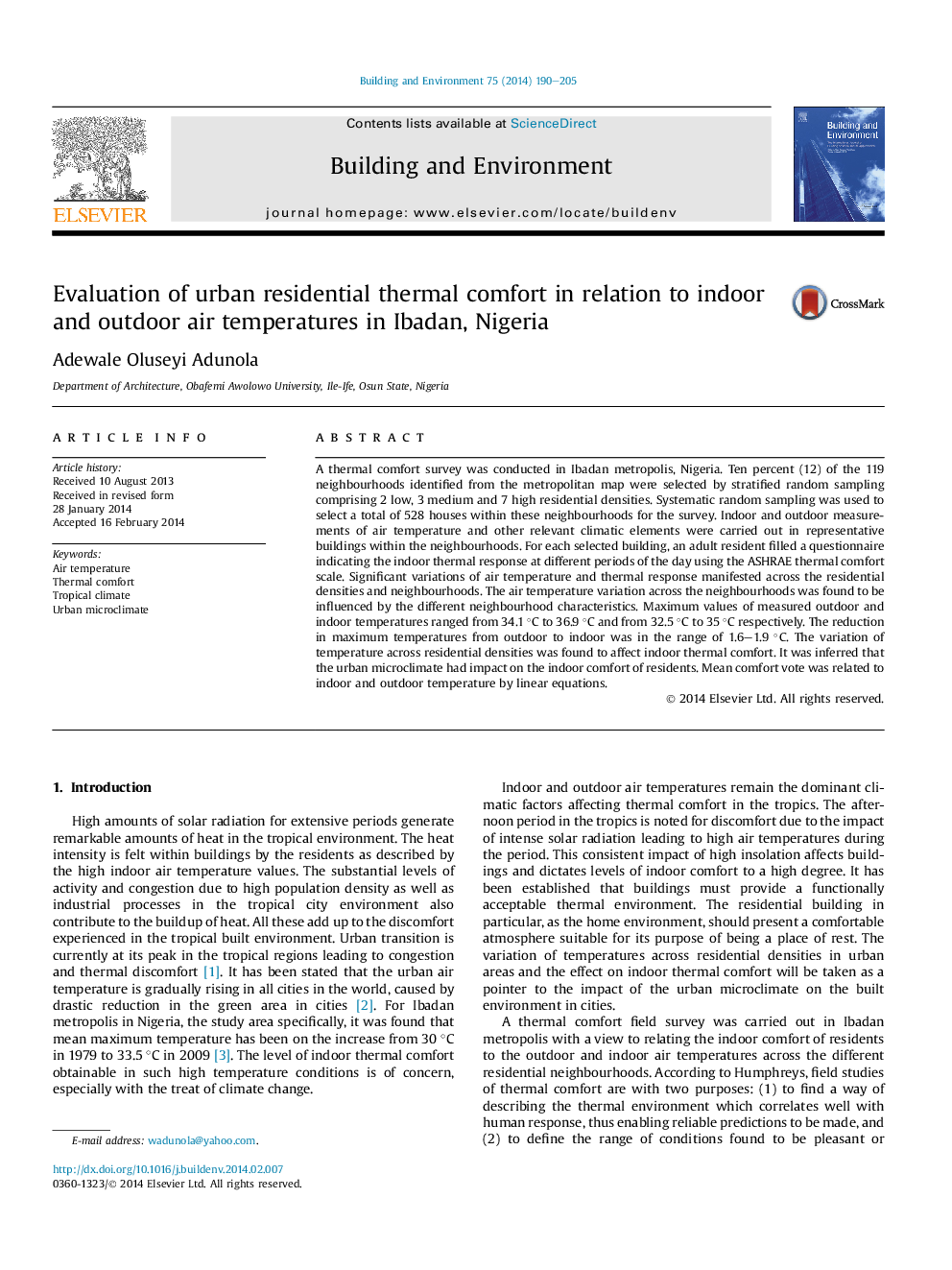| کد مقاله | کد نشریه | سال انتشار | مقاله انگلیسی | نسخه تمام متن |
|---|---|---|---|---|
| 248209 | 502552 | 2014 | 16 صفحه PDF | دانلود رایگان |
• Variation of air temperature across the residential densities and neighbourhoods.
• The air temperature variation influenced by the neighbourhood characteristics.
• Maximum temperatures reduced from outdoor to indoor in the range of 1.6–1.9 °C.
• Mean comfort vote was related to indoor and outdoor temperature by linear equations.
A thermal comfort survey was conducted in Ibadan metropolis, Nigeria. Ten percent (12) of the 119 neighbourhoods identified from the metropolitan map were selected by stratified random sampling comprising 2 low, 3 medium and 7 high residential densities. Systematic random sampling was used to select a total of 528 houses within these neighbourhoods for the survey. Indoor and outdoor measurements of air temperature and other relevant climatic elements were carried out in representative buildings within the neighbourhoods. For each selected building, an adult resident filled a questionnaire indicating the indoor thermal response at different periods of the day using the ASHRAE thermal comfort scale. Significant variations of air temperature and thermal response manifested across the residential densities and neighbourhoods. The air temperature variation across the neighbourhoods was found to be influenced by the different neighbourhood characteristics. Maximum values of measured outdoor and indoor temperatures ranged from 34.1 °C to 36.9 °C and from 32.5 °C to 35 °C respectively. The reduction in maximum temperatures from outdoor to indoor was in the range of 1.6–1.9 °C. The variation of temperature across residential densities was found to affect indoor thermal comfort. It was inferred that the urban microclimate had impact on the indoor comfort of residents. Mean comfort vote was related to indoor and outdoor temperature by linear equations.
Journal: Building and Environment - Volume 75, May 2014, Pages 190–205
